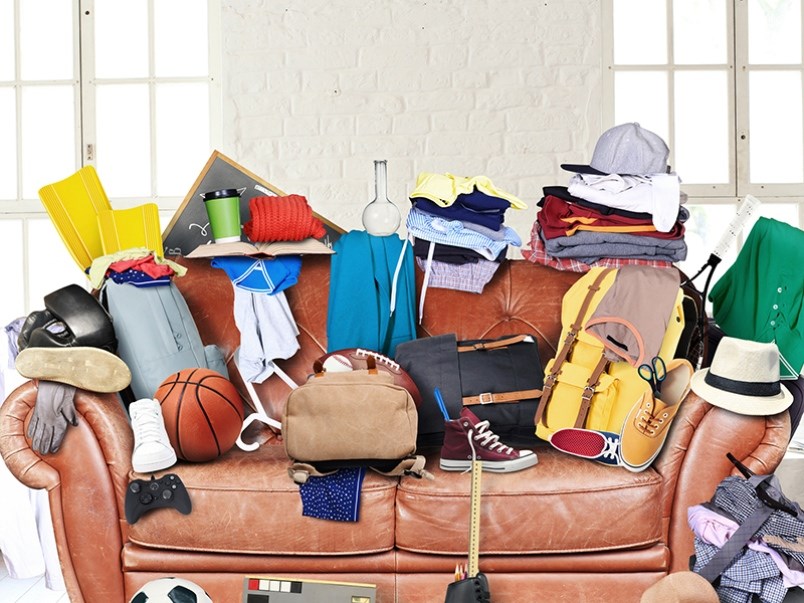What does clutter look like to you? How does it feel to be surrounded by piles of dirty dishes, unwashed clothes and an avalanche of papers you think you will need someday?
This way of living can say a lot about you, and there’s a good chance it’s something you are not ready to hear. Fortunately, addressing the issue behind your disorder can help you to dig yourself out of the physical and emotional ditch.
Let’s face it, you’re a procrastinator. Sometimes it feels so good to put certain chores off, until you become overwhelmed and frustrated. At this time, you might start avoiding your home, making all kinds of useless excuses that will not help you or your family.
I have seen so many children being deprived of nutritional meals, clean clothes and healthy socializing with friends. Don’t judge yourself too harshly as there is a reason or many reasons why you choose your way of life.
Your life is unpredictable and unplanned. You don’t do what you’re supposed to do, you usually do what you like and what feels good at that moment. Your life consists of constantly doing things for others, seeing people happy makes you feel good about yourself.
Your boundaries with your family and friends are very blurred, so it’s easy to take advantage of your time and energy. Not setting healthy boundaries with your family and having unclear life goals is an open gate to procrastination and an unfulfilled life. To improve your situation and quality of your life, you have to raise a higher standard of living for yourself and your family.
Do you have an impressive collection of clothes, shoes and accessories in your closet? Do you also have many scissors, calculators, batteries and tools in your home? The question is: how many do you use and need?
By not having one consistent place where you keep your things, the very next day, you might be struggling to find one pair of your many scissors.
Lately, you may have added a huge amount of food, toilet paper and other necessities. Can you relate to this pattern? Because of coronavirus, your hoarding of toilet paper is forgiven.
There is always some emotional stuff hidden in those piles preventing us from moving forward. In other words, you’re hanging on to your past. It could be a traumatic childhood, unresolved issues with your family and friends, a loss of somebody you loved, an undesirable life partner, or guilty feelings of past mistakes.
Living the life of continuous chaos could be a sign of not being motivated, not being skilled in an area, feeling shame, or being overwhelmed or depressed.
Not many people realize it, but clutter and depression can go hand in hand, especially if the clutter is out of control. A study published in the Journal of Psychiatric Research found there is a strong connection between the two, particularly when it comes to hoarding.
While the clutter in your home can seem like an organization issue, the study authors found it seems to be more of the individual problem, and it’s going to be hard to get rid of the clutter until you get your mental health issues resolved.
Ranka Burzan owns a professional organizing company based in Powell River and has written several books on reducing clutter and becoming more organized. For information, go to solutionsorganizing.com.



